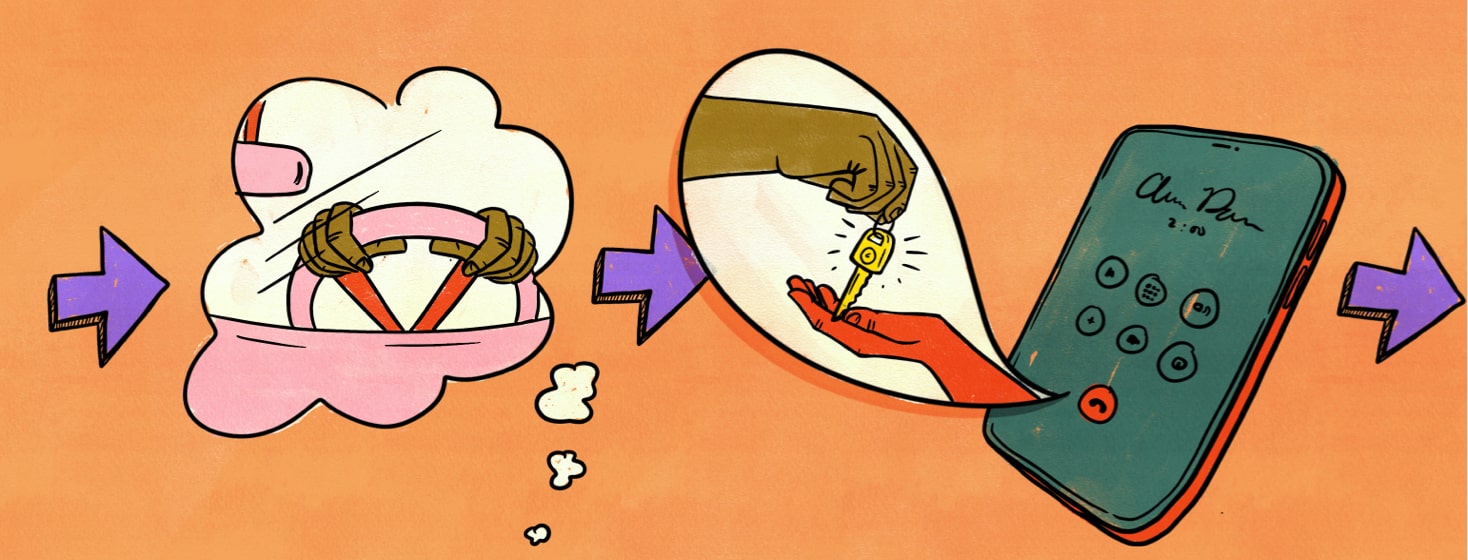Model of Change
It is Sunday morning of Thanksgiving “vacation”. I go back to work Tuesday. I have been a lazy, old slug these past few days. However, I did have things I really wanted to accomplish these 5 days.
Confronting change
Getting started on things I don’t want to do or want to do but just cannot get up the motivation for can be a problem. I really have not been ready to change my mind over to thoughts of accomplishment and not leisure. I have not been “up” to change my behavior.
Always on the lookout for an article idea, I started to think that that might be a problem for some of us with visual impairment as well. How so? Well, visual impairment requires a lot of changes to a life.
Getting the motivation and making the changes can be extremely difficult. Fortunately, however, a colleague has introduced me to the model of change. Maybe even more (or less?) fortunately, I am going to share it with you.
The model of behavior change
If you look up the transtheoretical model of behavior change you will discover the model of change is sometimes reduced down to its basic stages of change. I am going to do just that here.
There are 6 of them and they are often illustrated in a circle. That is because people don’t always stay at a level they have attained and might need to start over. Unfortunate, but true.
While the model of change is frequently applied in addiction work, I think it can also be applied to acquired disabilities such as macular degeneration.
Pre-contemplation
The first stage is pre-contemplation. Pre-contemplation is characterized by the word “No!” Not interested. Not ready. NOT going there. How many of us have been there? Rhetorical question. You don’t need to answer but notice that others have noticed.
Contemplation
The good news is pre-contemplation is a stage of change because from there you get to move to contemplation. In contemplation we start to realize things are not working well for us.
Perhaps the word for this stage would be “maybe”. What would happen if I decided to adapt and change? What would it look like? No action yet, but a lot of thought.
Preparation
The word often used for the preparation stage in is “ready”. The decision has been tentatively made and we test the proverbial waters. Small steps might be asking someone else to drive or moving the chair closer to the TV.
Action
Action is bigger steps. In our case it might be giving up driving altogether, investing in a CCTV magnifier. It is getting rid of negative behaviors and adopting more adaptive ones.
Maintenance
Maintenance is being able to sustain new behaviors and termination, the supposed last stage in some illustrations, is totally leaving any desire to relapse into unhealthy coping mechanisms. Those are tough for addictions as well as for us.
How many times have you wished you could just jump in the
Normalization
So, what is my point in all this? I guess it’s normalization.
Normalizing is a fancy, psychological term we use to tell people they are not as weird as they think they are. Just about everybody can be expected to go through all or part of the stages of change when trying to change stubborn, no longer adaptive patterns of behavior.
Persistence
Also, don’t give up. Adapting to a different lifestyle such as vision loss does not happen overnight. Stuck in the “no way” stage? I have found that just having the desire to “do better” can help move me along.
It took 3 days but I got my leftover work-work done before I wrote this page! How is that for behavior change?

Join the conversation